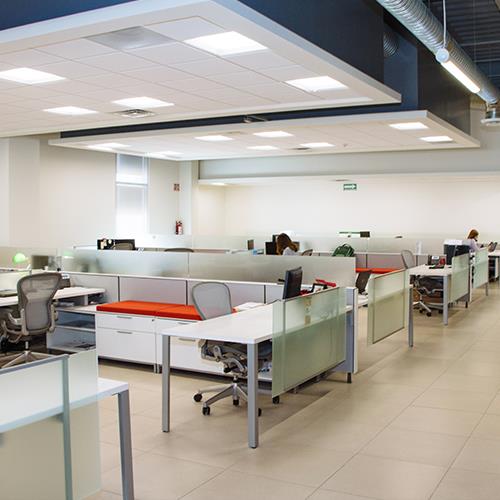There is clearly work to be done on the part of organizations to emphasize that returning to work, even partially, is not only in the interest of managers, but that it is also beneficial for employees. Here are some ideas for consideration.
Going to the office to create a healthy emulation
Getting together with colleagues is the first way to share ideas, ask for quick feedback, bounce ideas off each other and get things done a little faster. It's also more spontaneous than an email or video conference call. For companies as well as for their teams, working together favors creativity and innovation (one idea leads to another, an insignificant comment heard by chance can help solve an issue). Creativity and innovation are two aspects that are essential for their survival, whatever the field of activity.
More widely, the presence of colleagues in the office helps to stimulate general motivation... and to limit overwork. Indeed, when telecommuting, some people find it harder to end their day, whereas in the office there is a time when you have to go home. On the other hand, the interruptions, perhaps a little disturbing, that are always present in the office, actually play a positive role on the brain and prevent it from overheating! So don't ignore the colleague who sticks his head through the office door and interrupts you in your work (if not too often anyway), he prevents you from overworking. From a distance, these necessary breaks for your brain are rarer.
Presence to promote cohesion
Although it's easy to reach your colleagues with chat tools, it doesn't replace a face-to-face discussion. Firstly, to take advantage of the non-verbal aspect, and secondly, to avoid the tensions that are always possible when exchanging via interposed media. Who hasn't experienced the beginning of a "conflict" because a turn of phrase was confusing or was interpreted negatively, without the author's will? Another advantage that science has taught us is that human contact is good for us: by associating with our fellow human beings, our neurons produce a substance that is conducive to friendship, love, mutual aid, etc. The more we see each other, the more we form a group and develop cohesion. With remote work, this professional cohesion can be eroded in favor of a cohesion with the people we see regularly (neighbors, friends, family). If both cohesions are necessary (personal and professional), it goes without saying that the absence of strong professional cohesion will work to the disadvantage of the company (high staff turnover, less responsiveness to issues, lack of accountability, etc.). If this professional cohesion is beneficial for the company, it is also for its employees: it gives meaning to the work. We lose sight of what we get up in the morning for and what we are paid for.
Another element of cohesion is the purely informal exchanges during meals or during a happy hour after work, for example. This sharing, even though it is not professional, also contributes to solidifying the bonds within the teams.
In the long run, being with colleagues helps to reinforce the idea of a common goal. There is even a form of contagion with regard to this objective: if one clearly sees others working hard to contribute to the organization's objectives, there is a good chance that one will adhere to the same dynamic. And a group that knows why it works is a group that works better.
Out of sight, out of mind
Coming back to the office is also about remembering your peers and your manager. Let's be realistic for a moment, between a person who is present and one who is distant, which one is more likely to bond with their boss? Being present means having impromptu conversations that can lead to decisions... that the distant person will not have participated in even if they are impacted. Between the two, which one is more likely to stay in the team leader's memory when it comes time to assign projects, bonuses, promotions? Although the logic behind this is not objective (a distant person does not work less well than a present person, especially since this will have been agreed upon with the manager), the human brain works (in part) on affect and subjectivity. If you are far away you are more likely to be objectified and decisions against you will be made with less consideration.
Seeing each other to share
We don't know what we don't know. Instead, by being around others, we can learn from them and they from us. We can share knowledge, help develop skills, mentor, all in the service of business objectives.
And if there are new employees, it goes without saying that integration is faster and stronger in presence. Especially if the new talent is fresh out of school or has little work experience. How can you tell from a distance what difficulties the person may have?
Conclusion
With the recent exceptional circumstances, everyone has adapted and organized their daily lives to deliver what was expected, despite everything. We have to admit that things have worked quite well... so why change? Especially since there still seems to be a significant gap in perceptions between managers and employees. Proportionally, managers are much more likely to want to return to attendance. Probably because they don't experience the same issues as their teams (in the company they have a closed office, supervising the teams is easier, etc.). Since staying at a distance brings real advantages (flexibility of schedules, transportation, etc.) that can be measured in the very short term for the teams, it is up to the organization and its managers to find motivating factors to return to the presence. The mistake would be to advocate a return to the office simply because it is easy to want to come back "as before". You have to give people a good reason to come back, otherwise they will find one to go elsewhere.
Seeing each other again is also about giving yourself the means to get through a milestone, that of the pandemic.
To go further:










